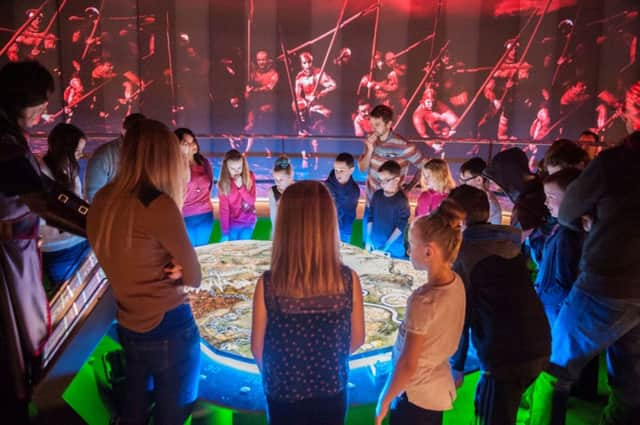Leaders: Bannockburn event in danger of defeat


Faced with a clash of major events on the same weekend, ticket sales for a three-day programme to mark the 700th anniversary of the battle have been flat-lining and the event itself has been scaled back. Now the Scottish Parliament’s tourism committee has entered the field with a furious charge, accusing VisitScotland of lack of candour over emerging problems.
The anniversary celebrations have long been billed as a flagship event in the Year of Homecoming and were initially given a near-£1 million budget. Given the worldwide focus on Scotland on this anniversary, it is essential that the Scottish Parliament is kept fully and accurately informed of developments. Now, with the event being scaled back from three days to two, tourism committee chairman Murdo Fraser has written to VisitScotland protesting that the briefing it gave to MSPs on 15 January fell well short of the disclosure expected.
Advertisement
Hide AdAdvertisement
Hide AdIt is unthinkable such an iconic event should fail. But just 2,000 tickets out of 45,000 have so far been shifted by VisitScotland, who took over the event from the National Trust for Scotland precisely to give it more marketing muscle. Ticket sales, with an ambitious starting price of £20, have struggled in the face of Armed Forces Day celebrations and a major pipe band competition in Stirling on the same weekend.
Has more been bitten off than can be chewed? And has VisitScotland, with other major events to advertise and promote, found itself unable to cope? News of flat ticket sales, coming on top of the cut in budget for the Bannockburn event from £950,000 to £650,000 and now suggestions of a cover-up, indicate that the event could be heading for an embarrassing debacle.
Mr Fraser’s complaint centres on an evidence session last month when VisitScotland officials were asked to provide an update on the agency’s programme. But, he says, “no reference was made” about plans to scale back the Bannockburn Live event or the paltry ticket sales. The agency’s chief executive indicated “no change” to the Bannockburn programme for the day and that changes were only about “logistics and management”. But just a fortnight later, it emerged that the troubled event was being scaled back and ticket sales were lamentable. It is, as the letter points out, inconceivable that the need for just such a change was identified purely in the period since 15 January. For parliamentary committees to discharge their responsibilities for scrutiny and accountability, accurate information is vital.
Step one should be full disclosure of the revisions to the event, an impact assessment of the rival attractions that weekend, an update on the finances and a full statement by VisitScotland on its strategy to turn the situation around to a successful conclusion. This, after all, should be about marking a victory, not a rout.
Jenny jumps to first GB medal on snow
Congratulations to Jenny Jones for winning Great Britain’s first ever Olympic medal on the snow with a dramatic snowboarding bronze in Sochi. Jones scored well in the first round but was particularly impressive in the second run to become the first Briton to win a medal at a Winter Games on snow rather than ice.
But what is snowboarding, exactly, a sport that may baffle more seasoned spectators? It was developed in the United States in the 1960s, became a Winter Olympic sport in 1998 and was only accepted as a Sochi event in 2012.
It involves descending a slope covered with snow while standing on a board attached to a rider’s feet, using special boots set into a mounted binding. It has been inspired by skateboarding, sledging, surfing and skiing, and is greatly enjoyed as a fun recreation by an estimated two million in the UK. Indeed, it has been described as much a lifestyle and cultural activity as a competitive sport. Its popularity can be attributed to a freedom of expression rarely enjoyed by many mainstream sports.
Young Scottish practitioners would seem to be particularly well placed for Winter Olympic glory, given the opportunities here. Skateboarding down The Mound without goggles, snow or Olympic-approved footwear without crashing head-first into the National Gallery is already extremely popular.
Advertisement
Hide AdAdvertisement
Hide AdJenny Jones has worked variously in a cardboard factory, a doughnut shop and as a chalet maid to help further her snowboarding career. Determination, resolution and fortitude have arguably contributed as much to her medal success as the technical skills she has honed in years of training.